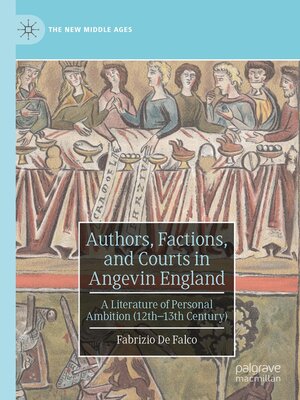Authors, Factions, and Courts in Angevin England
ebook ∣ A Literature of Personal Ambition (12th–13th Century) · The New Middle Ages
By Fabrizio De Falco

Sign up to save your library
With an OverDrive account, you can save your favorite libraries for at-a-glance information about availability. Find out more about OverDrive accounts.
Find this title in Libby, the library reading app by OverDrive.



Search for a digital library with this title
Title found at these libraries:
| Library Name | Distance |
|---|---|
| Loading... |
Authors, Factions, and Courts in Angevin England: A Literature of Personal Ambition (12th-13th Century) advances a model for historical study of courtly literature by foregrounding the personal aims, networks, and careers as the impetus for much of the period's literature. The book takes two authors as case studies – Gerald of Wales and Walter Map – to show how authors not only built their own stories but also used popular narratives and the tools of propaganda to achieve their own, personal goals. The purpose of this study is to overturn the top-down model of political patronage, in which patrons – and particularly royal patrons – set the cultural agenda and dictate literary tastes. Rather, Fabrizio De Falco argues that authors were often representative of many different interests expressed by local groups. To pursue those interests, they targeted specific political factions in the changeable political scenario of Angevin England. Their texts reveal a polycentric view of cultural production and its reception. The study aims to model a heuristic process which is applicable to other courtly texts besides the chosen case-studies.







